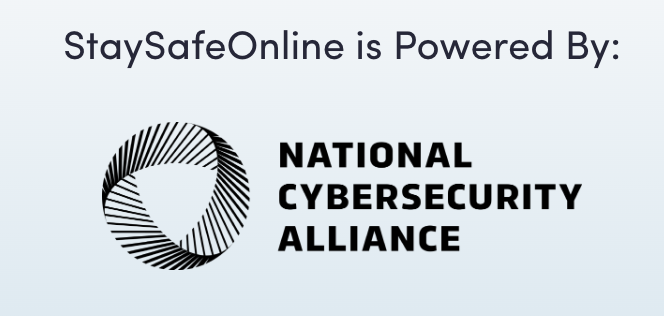No matter how you get to your destination or where you choose to stay, you will still be connected when you’re on vacation. Many travelers rely on technology even more to enhance their experience. As you embark upon your next adventure, stay cyber safe while away from home by following some simple practices to help keep your devices safe and your vacation plans from going awry.
enhance their experience. As you embark upon your next adventure, stay cyber safe while away from home by following some simple practices to help keep your devices safe and your vacation plans from going awry.
Getting ready to go
Before you head out on vacation, here’s a simple security checklist to add to your packing routine:
-
Travel lightly- Limit the number of devices you take with you. The more you take with you, the more risk you open yourself up to.
-
Check your settings- Set the privacy and security settings on web services and apps. It is okay to limit how and with whom you share information (like location tracking) – especially when you are away.
-
Set up the “find my phone” feature- This will allow you to find, remotely wipe data and/or disable the device if it gets into the wrong hands.
-
Password protect your devices- Make sure you require the use of a passcode or extra security feature (like a fingerprint) to unlock your phone or mobile device in case either is misplaced or stolen.
-
Update your software- Before you hit the road, ensure all security and critical software is up-to-date on your connected devices and keep them updated during travel. Turn on “automatic updates” on your devices if you’re prone to forgetting.
-
Back up files- If you haven’t taken a moment to back up the information, including files and photos, on your devices, do so before heading out for vacation. If something unfortunate does happen and you lose your device or access to it, you’ll at least be able to recover the information you backed up.
Your Planters First Bank Debit Card Comes with an On/Off Switch!
On the go
Now that your devices are updated, password-protected, and backed up, there are a few steps you can take to improve your security while on the go:
-
Actively manage location services- Location tools come in handy while planning to navigate a new place, but they can also expose your location ‒ even through photos. Turn off location services when not in use.
-
Use secure wi-fi- Do not transmit personal info or make purchases on unsecure or public wi-fi networks. Instead, use a virtual private network (VPN) or your phone as a personal hotspot to surf more securely.
-
Think before you post- Think twice before posting pictures that indicate you are away. Wait until you get home to share your magical memories.
-
Protect physical devices- Ensure your devices are with you at all times. If you are staying in a hotel, the best thing to do is lock them in a safe. If a safe is not available, lock them in your luggage. Don’t leave devices unattended with strangers. Using your device at an airport or cafe? Don’t leave it unattended with a stranger while you get up to use the restroom or order another latte.
-
Stop auto-connecting- Disable remote connectivity and Bluetooth. Some devices will automatically seek and connect to available wireless networks. And Bluetooth enables your device to connect wirelessly with other devices, such as headphones or automobile infotainment systems. Disable these features so that you only connect to wireless and Bluetooth networks when you want to. If you do not need them, switch them off.
-
If you share computers, don’t share information- Be extremely cautious on public computers in airports, hotel lobbies and internet cafes. Keep activities as generic and anonymous as possible. If you do log into accounts, such as email, always click “logout” when you are finished. Simply clicking the “x” on your browser does not log you out of accounts.
Planters First Bank uses state-of-the-art fraud monitoring solutions that help protect your accounts from fraudulent use.
If any suspicious activity or out of normal usage is detected, you will be contacted by a bank employee or by a service center staff member on behalf of Planters First Bank.

The National Cybersecurity Alliance is a non-profit organization on a mission to create a more secure, interconnected world. We advocate for the safe use of all technology and educate everyone on how best to protect ourselves, our families, and our organizations from cybercrime. We create strong partnerships between governments and corporations to amplify our message and to foster a greater “digital” good.
FCC: Cybersecurity Tips for International Travelers
ID Theft Center: Travel Safe Blog
Consumer Reports: What You Need to Know About Cyber Safety While Traveling
